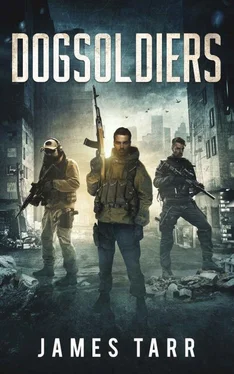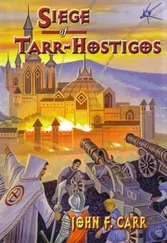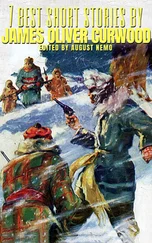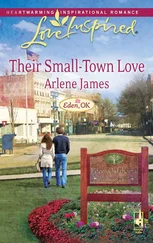“Sound wrong? Oh!” Early said, suddenly understanding. “It’s science, actually. The sound of the gunshots don’t match up to what you’re seeing because the light from the muzzle flash travels at the speed of light. The sound from the gunshots travels at the speed of sound, which is something like a thousand feet per second. Speed of light is a couple hundred thousand miles per second or something crazy like that. Close up, say from across the street, you won’t notice anything, but the further away you are from the fighting, the more of a difference you’ll see. You’ll see the shot before you hear it. That’s also a good way to tell if the person shooting at you is close or far, as bullets travel faster than the speed of sound. If the sound of the bullet hitting nearby comes at the same time as the gunshot, they’re close. If the bullet hits and you have to wait a second or more to hear the gunshot… well, then you know you’ve got a sniper to deal with.”
The men lined up along the ridge saw a long staccato flash from the Growlers, and after a pause the deep bass of the heavy machinegun firing reached them.
“Somebody got pissed off,” Quentin observed.
“That a .50?” Weasel asked.
Quentin nodded. “Roof mounted on a Growler, I’d bet.”
“Kestrel!” George hissed. He’d heard it a second before he saw it, swooping in from the south. The helicopter was running dark. It came in low over the giant abandoned mall to the southeast, circled around to the north side of The Twins, and then suddenly there were flashes and contrails. The front of the apartment building exploded. Bricks and glass showered the parking lot from the missiles impacting the sixth and seventh floors. Then the Kestrel let loose with its minigun. At 2000 RPM, with every fifth round a tracer, the bullets leaping from the six-barreled cannon looked like a reddish-orange laser beam running from the front of the aircraft to the face of the apartment tower. When the sound hit them it sounded like a giant ripping a phone book in half.
“Time to go!” Ed said, biting back more profanity. They wouldn’t be heading south for a while, not with all that activity. He jabbed his hand toward the west. The men slid backward down the hill, got to their feet, and headed through the grass.
Jason looked back wistfully, wanting to watch the action, but couldn’t see over the hill. Instead he followed Early through the tall grass toward more dark houses.
There were more houses past the grassy TV station property, as well as a condo complex filled with duplex units. Past that… Ed wracked his brain, trying to remember the map he stared at so often. The entire area to the west of the sunken freeway was residential. Wall to wall houses. There were a lot of old neighborhoods two miles west of where they were now, choked with mature trees that hindered aerial observation. The squad had one… no, two houses in the area they used, as well as a couple of rainwater catches. If they were in place and undisturbed. Of course, they still weren’t heading south, but they also hadn’t been spotted by any Army units either. At that thought he heard the sound of the Kestrel’s minigun letting loose again.
The land was ours before we were the land’s.
She was our land more than a hundred years
Before we were her people. She was ours
In Massachusetts, in Virginia,
But we were England’s, still colonials,
Possessing what we still were unpossessed by,
Possessed by what we now no more possessed.
Something we were withholding made us weak
Until we found out that it was ourselves
We were withholding from our land of living,
And forthwith found salvation in surrender.
Such as we were we gave ourselves outright
(The deed of gift was many deeds of war)
To the land vaguely realizing westward,
But still unstoried, artless, unenhanced,
Such as she was, such as she would become.
The Gift Outright Robert Frost
If some foreign government had done to our major cities what we have done ourselves, their capital city would still be a glowing sheet of radioactive glass.
—Patrick Sweeney
They’d stayed on the move until after midnight. Every time Ed wanted to rotate south the squad heard a Growler in that direction, a Kestrel flying low, or more gunfire. They were forced back north even as they moved west, making their way slowly through old neighborhoods which had been woody before the war had broken out; now they were downright rustic.
After several hours of careful trekking through backyards and small city parks and down tree-lined streets the squad was finally able to turn south. Through the light of the bright moon they hiked through treelines and parking lots and fields overgrown with waist-high grass, and finally crossed the 18-hole golf course of a now-defunct country club. They spooked two deer bedding in a thicket between two high-grass fairways. The animals bounded away silently, beautifully, moving as if they existed on a planet with lower gravity.
On the south side of the golf course were a few residential streets. Before the war the houses there were a bit secluded, sitting on large, heavily treed lots. Ed didn’t care about the tree cover as much as he did the river winding its way south through the golf course. Well, technically it was labeled a river even here, but it didn’t rate the name. Ten miles south it grew into a true river, but here it was just a large muddy stream… but it was only four hundred feet from the back doors of those secluded houses. One of those houses had burned and then been abandoned. Or abandoned and then burned—Ed didn’t know exactly the order of what had happened, all he knew was that the house was vacant, secluded, blessed with great tree cover, and a stone’s throw from running water. It had served them well on past patrols.
A quick search showed them the house was unoccupied, and after establishing a watch schedule the exhausted squad went to sleep in the half of the house untouched by fire, although everything still smelled of smoke and mildew.
“Nobody thinks of there being streams or even rivers in cities and neighborhoods, but there are,” Ed told Jason the next morning. While they’d been diverted from their route they were nowhere near behind schedule, so he’d let everyone sleep until eight. Rest while you can, he’d learned that lesson years ago. “Some of them are sealed away, or walled off, but they’re on most maps, and easy to find.”
“And when in doubt, head to a golf course,” George said, chewing on an energy bar. “There’s always ponds, and usually a stream or two. The nice neighborhoods, you can find swimming pools every block.”
“Now, none of it is safe to drink, untreated,” Ed went on, “but cities aren’t nearly as dry as you might think.”
Jason looked between the two older men, then around at the rest of the squad. “How come none of you wear helmets?” They were all wearing what he’d learned were “plate carriers”, vests which held armored plates front and back to cover their vitals, but unlike the military, he hadn’t seen a single dogsoldier wearing a ballistic helmet. Half of them were bare-headed, the rest wore baseball caps. The ball cap snugged onto George’s head bearing an Olde English D was so sweatstained, faded, and dirty it was impossible to tell its original color. Which meant it was nicely camouflaged.
George answered. “The last two generations of ballistic helmets for the military have had tracking chips, locator chips, embedded in them just like the soldiers’ rifles.” His eyes tracked up to the brim of his baseball cap. “A helmet would be a pain in the ass in this heat, but I’d surely appreciate some Kevlar up there when the bullets start flying.” He cocked his head and eyed the baby-faced new member of the squad. Jason was staring intently at the energy bar in his hand. “When was the last time you had something to eat?”
Читать дальше












